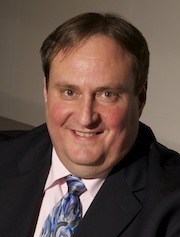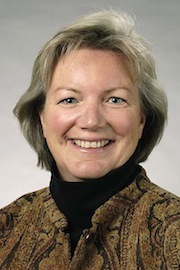UW-Madison names new pharmacy dean
Steven M. Swanson of the University of Illinois at Chicago has been chosen as the new dean of the School of Pharmacy at the University of Wisconsin–Madison.
“We are thrilled Professor Swanson has accepted our offer and will now become a Badger,” says UW–Madison Provost Paul M. DeLuca Jr. “His extraordinary leadership, scholarship and energy will play important roles in maintaining and growing the international reputation earned by our School of Pharmacy.”

Steven M. Swanson
A professor of pharmocognosy at UIC since 1998, Swanson’s fond memories of his profession go back to the wide marble counter and soda fountain of the downtown pharmacy in his boyhood home of Wilmette, Ill.
“The School of Pharmacy at Wisconsin is a world-renowned school, and the opportunity to be dean at such a leading institution is an honor,” says Swanson, who is associate dean for research and graduate education and visiting vice dean at UIC.
Pharmacy’s place in close proximity to both a medical school and a veterinary school makes it attractive to students and faculty with an eye toward partnerships and a wide range of options for research and study, according to Swanson, but he was also very drawn to the lakeside setting and the activity level of campus.
“To come to work alongside a medical center that is right on a big undergraduate campus is exciting,” he says. “The energy the students bring to that environment is palpable. There is so much creativity, and that benefits everyone.”
He looks forward to his arrival in Madison, so he can start picking the brains of his new colleagues and students.
“If pharmacists can take the time with each patient to carefully discuss their medication therapy with them, we can make a big impact in the quality of health care and reduce the cost by avoiding unnecessary visits to the emergency room and doctor’s office.”
Steven M. Swanson
“I want them to talk about their hopes for the future,” says Swanson, who earned his doctorate at UIC in 1990. “When people are engaged, when their voice is heard, they’re ready to give you 110 percent. And that’s what we need to work with passion to continue the school’s upward trajectory.”
Swanson believes the school may serve its graduates and alumni best by working to expand pharmacists’ role in their patients’ treatment.
“Ideally, we are training pharmacy students who can practice at the top of their license,” he says. “If pharmacists can take the time with each patient to carefully discuss their medication therapy with them, we can make a big impact in the quality of health care and reduce the cost by avoiding unnecessary visits to the emergency room and doctor’s office.”
In his own lab, Swanson studies the effect of dietary substances on the cellular mechanisms at work when cancer begins, as well as the discovery of anticancer drugs from natural sources and the role of hormones — particularly growth hormone — in cancer.
Swanson will assume leadership of the school July 1. Jeanette Roberts, who came to UW–Madison in 2003, will serve as dean until Swanson arrives and remain a member of the faculty in the school’s Pharmaceutical Science Division.

Jeanette Roberts
“Jeanette set and met so many excellent strategic goals for the School of Pharmacy during her long tenure,” DeLuca says. “We are very appreciative for the 11 years of service she gave as dean, especially the work she has done as we looked so hard for a capable successor.”
Established in 1883, UW–Madison’s School of Pharmacy was the first in the United States to offer baccalaureate degrees in pharmacy, and first to grant doctoral degrees in pharmaceutical chemistry, pharmaceutics, the history of pharmacy, social studies of pharmacy and continuing education, and one of the first in pharmacy administration.
The school has more than 8,000 living alumni and an enrollment of more than 600 students. It stood fifth among more than 100 programs in the most recent U.S. News rankings. The World Education Congress recently named the school Best Educational Institute in Pharmacy in the world.
The dean serves as the chief academic and executive officer for the college, with responsibility for personnel, budget, fundraising, community relations, curriculum, academic affairs and physical facilities.
Tags: campus administration



